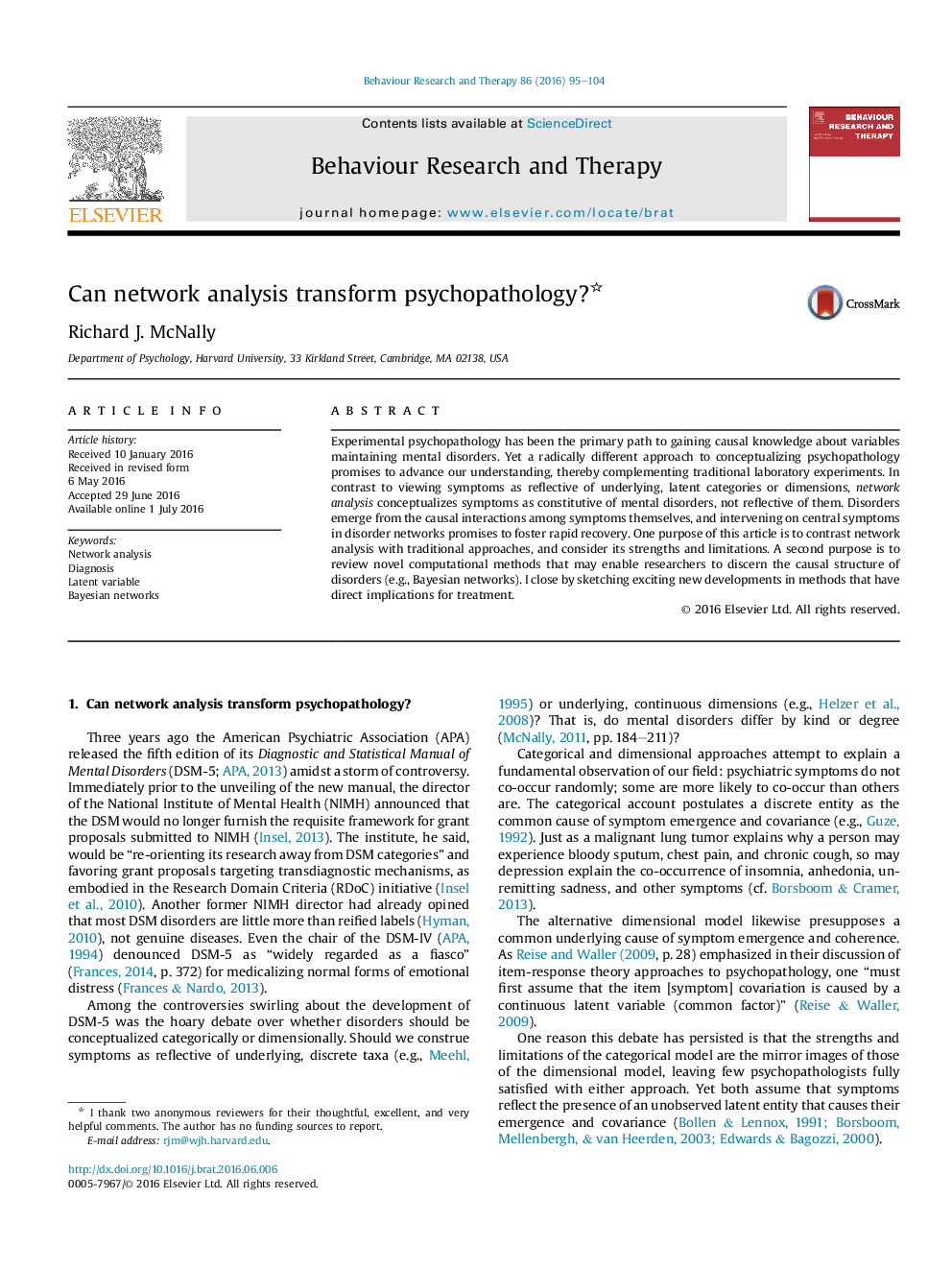| Article ID | Journal | Published Year | Pages | File Type |
|---|---|---|---|---|
| 5038340 | Behaviour Research and Therapy | 2016 | 10 Pages |
â¢Latent variable approaches to mental disorder are conceptually flawed.â¢Network analysis views disorders as causal systems of interacting symptoms.â¢Network analysis has clinical implications.
Experimental psychopathology has been the primary path to gaining causal knowledge about variables maintaining mental disorders. Yet a radically different approach to conceptualizing psychopathology promises to advance our understanding, thereby complementing traditional laboratory experiments. In contrast to viewing symptoms as reflective of underlying, latent categories or dimensions, network analysis conceptualizes symptoms as constitutive of mental disorders, not reflective of them. Disorders emerge from the causal interactions among symptoms themselves, and intervening on central symptoms in disorder networks promises to foster rapid recovery. One purpose of this article is to contrast network analysis with traditional approaches, and consider its strengths and limitations. A second purpose is to review novel computational methods that may enable researchers to discern the causal structure of disorders (e.g., Bayesian networks). I close by sketching exciting new developments in methods that have direct implications for treatment.
